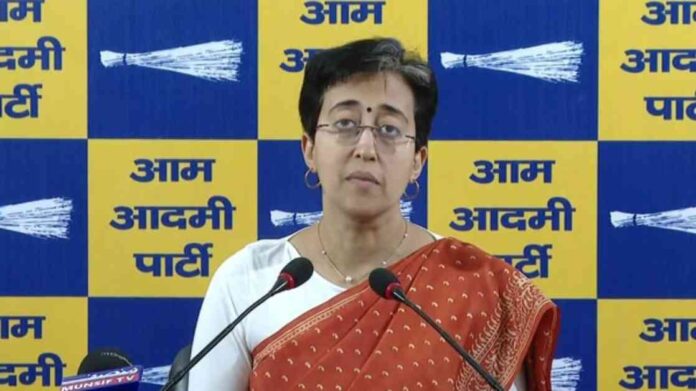Atishi, the former Delhi Chief Minister, did not mince words when she criticized the BJP-led Delhi government for failing to deliver on its promise of the ₹2,500 ‘Mahila Samriddhi Scheme’. The scheme, which aimed to provide financial assistance to poor women, was a key campaign pledge by the BJP during the Delhi Assembly polls held in February. However, Atishi alleged that the government had not deposited the monthly aid in the accounts of women, calling Prime Minister Narendra Modi’s guarantee a mere ‘jumla’.
Delhi Chief Minister Rekha Gupta approved the allocation of ₹5,100 crore for the implementation of the scheme and formed a committee to oversee its execution. But Atishi was quick to point out that despite the government’s promises, women had not received any money, nor were they provided with a registration portal. Instead, they were presented with a 4-member committee, which she deemed inadequate.
In a scathing attack on the BJP, Atishi declared that the party had misled voters and warned that if they failed to deliver on this promise, it was likely that other commitments in their Sankalp Patra would also prove to be false. She emphasized the need for transparency and accountability in government schemes, especially those aimed at empowering women and providing financial security.
Expert Insights on Mahila Samriddhi Scheme
Experts have weighed in on the Mahila Samriddhi Scheme, highlighting the importance of timely implementation and effective delivery of benefits to the intended recipients. Dr. Ritu Sharma, a social welfare expert, emphasized that such schemes play a crucial role in bridging the gender gap and empowering women economically. She stressed the need for rigorous monitoring and evaluation to ensure that the scheme achieves its desired outcomes and reaches the most vulnerable sections of society.
Moreover, Dr. Sharma underscored the significance of building trust with beneficiaries by fulfilling promises made during election campaigns. She noted that failure to do so could erode public confidence in the government and lead to disillusionment among voters, particularly marginalized communities who rely on such welfare schemes for their livelihoods.
Future Prospects and Application Process
The Delhi government has announced plans to launch a dedicated web portal for registrations under the Mahila Samriddhi Scheme. The portal will leverage advanced technology, including Aadhaar-based e-KYC, to facilitate seamless disbursement of financial benefits and ensure transparency in the process. Applicants will be required to provide relevant information online to avail themselves of the scheme’s benefits.
As the government prepares to roll out the scheme, there is a growing sense of anticipation among women in Delhi who are eagerly awaiting the promised financial assistance. The success of the Mahila Samriddhi Scheme hinges on the government’s ability to address the concerns raised by Atishi and other critics, and deliver on its commitments to empower women and promote economic security across the city.
In conclusion, the Mahila Samriddhi Scheme holds immense potential to transform the lives of women in Delhi by providing them with much-needed financial support and economic independence. However, its success will ultimately depend on the government’s willingness to prioritize transparency, accountability, and timely delivery of benefits to the intended beneficiaries. Only time will tell whether the BJP-led Delhi government can rise to the challenge and fulfill its promise to the women of Delhi.

















